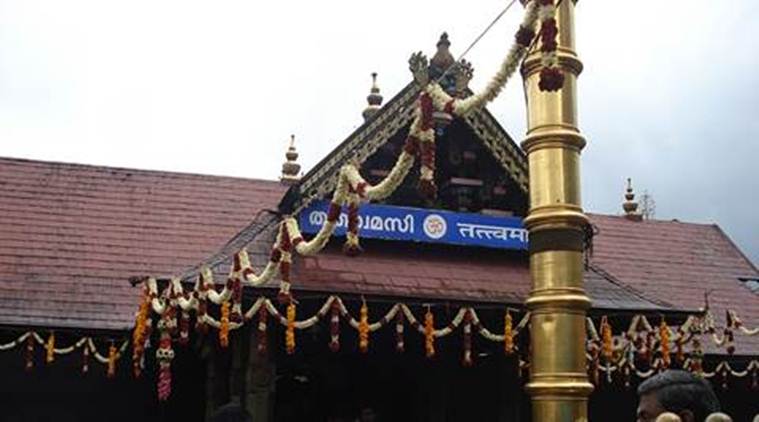 Several women activists have opposed the ban on the entry of women inside the temple.
Several women activists have opposed the ban on the entry of women inside the temple.
Defending the Sabarimala tradition in the Supreme Court, advocate Abhishek Manu Singhvi on Tuesday told the bench that there are temples in the country where even men are not allwoed. He added that a court cannot be invited to give a finding that a tradition or belief is not of antiquity without the evidence being examined in a trial.
Arguing for the Travancore Devasom Board which administer the sabarimala temple, Singhvi also argued that there are hundreds of traditions practised buy dozens of faiths in India and it is not possible to bring them all under definition of Constitutional morality. “Even in Mosques across the country, women are not allowed,” said Sighvi.
He added that the test under articles 25 and 26 was not whether a particular practice was right or wrong but whether it was a bonafide belief practiced for centuries by a community. To this Justice R F Nariman observed that no one had said in any affidavit that the they were not being allowed to enter because of impurity.
Arguing further, Singhvi said in these cases, original reason was not gender. Justice Nariman replied to this by saying “if petetioner’s say it violates their fundamental rights, burden is on you to disprove”.
Last week, hearing the contentious issue relating to the ban on entry of women between 10 and 50 years of age in Kerala’s historic Sabarimala temple, the Supreme Court had observed that a woman’s right to pray is equal to that of a man and it should not be dependent on law.
The court had observed that “what applies to a man applies to a woman” as well and said that a “woman’s right to pray was not dependent on any law but it is a Constitutional right”.
Several women activists have opposed the ban on the entry of women inside the temple.
The Kerala government, however, given support to the women’s cause saying it in favour of their entry inside the temple.